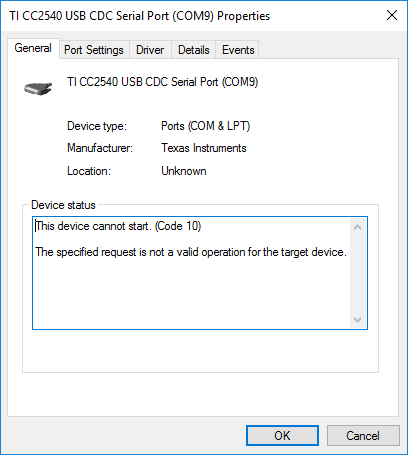Other Parts Discussed in Thread: CC2540
I am unable to install the driver for the CC2540 USB dongle running the sniffer software under Window 10, 64bit.
Windows itself correctly identifies the USB dongle as a "CC2540 USB Dongle" but the driver in Program Files (x86)\Texas Instruments\SmartRF Tools\Drivers\cabal\win_32bit_x86 fails to install. The documentation I have found on TI.com mentions Windows through 8, and specifically 32-bit. However, I *am* able to load the driver and run the SmartRF sniffer in a 64-bit Windows 7 VM, which is being hosted by Windows 10 64-bit.
So is there, or will there be, a 64-bit Windows 10 driver? I really hope so because we've been recommending this USB sniffer to our clients...
-- Neal


